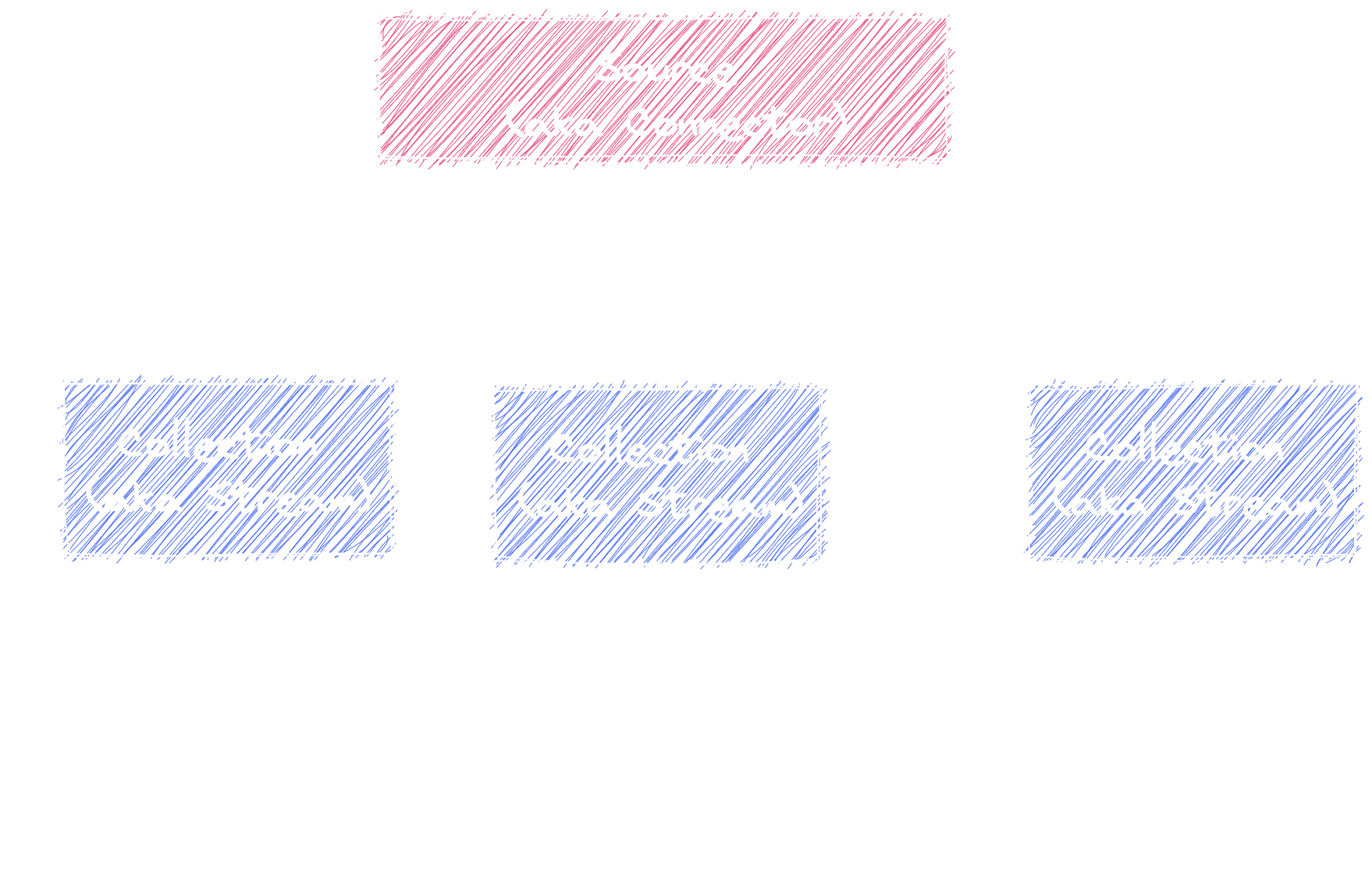Sources Configuration
Understanding sources (aka connectors)#

Sources (or connectors) are used to import data from external API (Google Analytics, Facebook, etc) or databases (redis, firebase, etc) into destinations. Each source represents a connection to particular API.
Synchronization scheduling engine is called sync tasks sync tasks.
Jitsu supports 3 type of sources:
- Native sources (example: Google Ads, Facebook). Those sources are written in Go and are a part of Jitsu code-base
- Singer based sources. Singer as a collection of ETL-connectors written in Python (called 'taps'). Singer-based sources are not part of Jitsu codebase. Jitsu just runs the python package, processes output and saves data to a destination. Learn more about Singer-based sources configuration
- Airbyte based sources. Airbyte is an ETL-framework similar to Sinnger. Airbyte sources are distributed as docker images. Jitsu pulls those images, runs them and puts output to a database. Learn more about Airbyte-based sources configuration
Collections (aka streams)#
Each source exports one or more collections (also called "streams" in Airbyte/Singer nomenclature). Example: slack source exports Users, Messages, Channels and few other collections. Each collection is represented by a table in a destination.
Collections may be static or configurable. Configuration usually defines a set of fields which are exported. Example Firebase
collections (users, firestore) are static while Google Analytics collections is parametrized (Google Analytics has dimensions and metrics).
Native Connecting Configuration#
This section applies only to connectors that are native part of Jitsu. A full list of native connectors is: is: facebook, google-ads, google-analytics, redis, google-play, firebase, amplitude.
Other connectors (based either on Singer, or Airbyte) has a slighly different configuration syntax. Learn more abour Singer-based or Airbyte-based sources
Example of source configuration:
sources:
firebase_example_id:
type: firebase
destinations:
- "<DESTINATION_ID>"
collections:
- "<FIRESTORE_COLLECTION_ID>"
config:
project_id: "<FIREBASE_PROJECT_ID>"
key: '<GOOGLE_SERVICE_ACCOUNT_KEY_JSON>'
google_analytics_example_id:
type: google_analytics
destinations:
- "<DESTINATION_ID>"
collections:
- name: "report_test"
type: "report"
schedule: '45 23 * * 6'
parameters:
dimensions:
- "ga:country"
- "ga:yearMonth"
metrics:
- "ga:sessions"
config:
view_id: "<VIEW_ID_VALUE>"
auth:
service_account_key: "<GOOGLE_SERVICE_ACCOUNT_KEY_JSON>"
...Common yaml properties for all sources (all yaml properties are required):
| Property | Description |
|---|---|
type | determines the type of a data source from which data would be imported (like google_analytics or firebase) |
destinations | list of destination ids where result must be stored |
collections | list of collections to synchronize |
config | custom parameters for each source type |
To see how to configure some type of source, please visit documentation pages for exact source types.
This feature requires:
meta.storage configurationprimary_key_fields configuration (in Postgres destination case)Collection Configuration#
Sources should define a list of collections (or stream) explicitly. Each collection defines a synchronization schedule, destination table name (table name will be prefixed
with source_id to avoid collisions). Here's an example configuration snippet:
sources:
firebase_example_id:
collections:
- name: "some_name"
type: "collection_type_id"
table_name: "table_name_for_data"
start_date: "2020-06-01"
schedule: '@daily' #cron expression. see below
parameters:
field1: "value"
field2: ["values"]
field3:
some_object:
...Full list of parameters
| Parameter | Description |
|---|---|
name (required) | is a unique identifier of collection within a list of collections |
type | determines which data subset must be synchronized. If type absents, type equals to name parameter |
table_name | name of the table to keep synchronized data. If not set, equals to the name of collection |
start_date | start date string of data to download in YYYY-MM-DD format. Default values is 365 days ago |
schedule | cron expression automatic collection synchronization schedule. If not set - only manual collection synchronization(by HTTP API) will be available |
parameters | if the collection is parametrized, parameter values are set here. A value may be of any type (string, number, boolean, list, object). To get a full list of parameters, take a look to catalog |
If the collection has no parameters, it may be configured only by its name as a string argument. For example:
collections: ["collection1_id", "collection2_id"]Configuring sources via HTTP - endpoint#
If sources configuration is generated by an external service, it is possible to externalize via HTTP end - point (or file) as follows:
sources: 'location'The location can behttp(s):// of a local file (/path/to/file) location and should contain YAML or (JSON that is identical to YAML structure). If the location is an URL, the client will respect If-Modified-Since / Last-Modified caching.
Example of URL content:
{
"sources": { #json object where inner keys - sources unique ids
"facebook_marketing_online_sales": { #source config object
"type": "facebook_marketing",
...
},
"facebook_marketing_offline_sales": {
"type": "facebook_marketing",
...
}
}
}